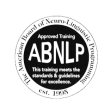
Personal Coaching Benefits: Why You Need a Coach
Unlock your full potential with personal coaching—discover how a coach can transform your life, career, and relationships.
Introduction
In today’s fast-paced and competitive world, achieving personal and professional goals can be a daunting task. Personal coaching has emerged as a powerful tool for individuals seeking guidance, support, and strategies to unlock their full potential. Whether you’re aiming to advance your career, build self-confidence, or achieve personal milestones, investing in a personal coach can be transformative. This article delves into the key benefits of personal coaching and explains why partnering with a coach might be the game-changer you need.
Key Benefits of Personal Coaching
1. Enhanced Self-Awareness and Clarity
Personal coaching fosters deep self-reflection, helping you identify your core values, strengths, and areas for improvement. Through thought-provoking conversations and constructive feedback, coaches guide you to explore your motivations, beliefs, and emotional responses. This heightened self-awareness enables you to make decisions that align with your true self, leading to increased satisfaction and fulfillment in life.
- Experience: Coaches often share insights from their own journeys, providing real-world examples that resonate.
- Expertise: Certified coaches use proven methodologies to help you gain clarity and direction.
2. Goal Setting and Achievement
Setting and achieving goals is a cornerstone of personal coaching. Coaches assist you in defining clear, actionable objectives and developing a roadmap to reach them. Utilizing frameworks like SMART goals (Specific, Measurable, Achievable, Relevant, Time-bound), coaches ensure your aspirations are attainable and aligned with your broader life vision.
- Authoritativeness: Coaches bring a wealth of knowledge in goal-setting strategies, ensuring you stay on track.
- Trustworthiness: They provide honest feedback and hold you accountable, fostering a reliable partnership.
3. Improved Communication and Interpersonal Skills
Effective communication is vital for success in both personal and professional realms. Coaching enhances your ability to express thoughts clearly, listen actively, and empathize with others. These improved communication skills lead to better relationships, conflict resolution, and collaboration.
- Experience: Coaches often draw from diverse interactions, offering insights into various communication styles.
- Expertise: They teach techniques to navigate complex interpersonal dynamics confidently.
4. Greater Accountability and Motivation
A personal coach serves as an accountability partner, keeping you motivated and focused on your goals. Regular coaching sessions provide opportunities to review progress, celebrate achievements, and address obstacles. This ongoing support helps maintain momentum and fosters a strong commitment to personal growth.
- Authoritativeness: Coaches use structured approaches to track your progress effectively.
- Trustworthiness: Their consistent presence builds a trustworthy relationship, encouraging open dialogue.
5. Overcoming Limiting Beliefs and Building Confidence
Limiting beliefs can hinder your progress and keep you from reaching your potential. Coaches help identify these negative thought patterns and work with you to reframe your mindset. By challenging and replacing self-doubt with empowering beliefs, coaching boosts your confidence and willingness to take on new challenges.
- Experience: Many coaches have overcome their own limiting beliefs, offering relatable guidance.
- Expertise: They employ psychological techniques to transform your mindset effectively.
6. Stress Management and Emotional Resilience
Life’s challenges can lead to stress and emotional strain. Coaches provide tools and strategies for managing stress, building resilience, and maintaining emotional well-being. Techniques such as mindfulness, breathing exercises, and cognitive restructuring help you navigate obstacles with a calm and focused approach.
- Authoritativeness: Coaches are trained in stress-reduction methodologies backed by psychological research.
- Trustworthiness: They create a safe space for discussing sensitive issues, ensuring confidentiality.
Why You Need a Personal Coach
Personalized Guidance and Support
Unlike generic self-help resources, personal coaching offers tailored guidance that addresses your unique circumstances. Coaches develop customized strategies that align with your goals, values, and lifestyle. This personalized approach ensures that the coaching experience is relevant and effective.
- Experience: Coaches adapt their methods based on what works best for you.
- Expertise: They draw from a broad toolkit to address specific challenges you face.
Accelerated Growth and Transformation
Coaching accelerates your personal and professional development by providing structured support and actionable insights. With a coach, you can achieve your objectives more efficiently, avoiding common pitfalls and staying focused on what matters most.
- Authoritativeness: Coaches streamline your growth process with proven techniques.
- Trustworthiness: Their commitment to your success fosters a trusting relationship that encourages bold steps.
Creating a Balanced and Fulfilling Life
Balancing career, relationships, and personal well-being can be challenging. Coaches help you set priorities, manage time effectively, and make choices that lead to a harmonious and fulfilling life. By aligning your actions with your core values, coaching promotes overall happiness and satisfaction.
- Experience: Coaches often share strategies that have worked for others in similar situations.
- Expertise: They guide you in making informed decisions that enhance life balance.
Conclusion
Personal coaching offers a wealth of benefits that can significantly impact your life. From enhancing self-awareness and communication skills to overcoming limiting beliefs and managing stress, a coach provides the tools and support necessary for meaningful change. Investing in personal coaching is a proactive step toward unlocking your potential, achieving your goals, and living a more fulfilled and balanced life. If you’re ready to embark on a transformative journey, partnering with a personal coach could be the key to your success.
FAQs
What is personal coaching, and how does it work?
Personal coaching is a professional relationship where a coach helps you identify and achieve personal and professional goals. Through regular sessions, coaches provide guidance, support, and feedback, helping you gain clarity and develop actionable plans.
How is personal coaching different from therapy?
While both coaching and therapy aim to improve well-being, coaching focuses on future goals and actionable strategies, whereas therapy often addresses past issues and emotional healing. Coaching is typically more goal-oriented and present-focused.
Can personal coaching benefit anyone?
Yes, personal coaching can benefit individuals at any stage of life or career. Whether you’re seeking career advancement, personal growth, or better life balance, a coach can provide valuable insights and strategies tailored to your needs.

How Coaching Can Help You Achieve Career Growth
Career growth is a crucial aspect of professional development, and coaching has become an increasingly popular tool for individuals looking to advance their careers. By providing guidance, support, and accountability, coaching can help individuals achieve their career goals and reach their full potential. This article explores the benefits of coaching for career growth and how it can make a significant difference in your professional journey.
Introduction
In today’s competitive job market, career growth is more important than ever. Individuals seeking to advance in their careers often face challenges such as identifying their strengths, setting achievable goals, and navigating workplace dynamics. Coaching offers a personalized approach to overcoming these challenges, providing the support and guidance needed to achieve career success.
Understanding Career Coaching
What is Career Coaching?
Career coaching is a professional service that helps individuals clarify their career goals, develop action plans, and achieve their professional aspirations. Coaches work with clients to identify strengths, address weaknesses, and create strategies for career advancement.
The Role of a Career Coach
A career coach serves as a mentor and advisor, offering personalised guidance and support. They help clients explore career options, set realistic goals, and develop the skills needed to succeed in their chosen fields. Coaches also provide accountability, ensuring clients stay on track and make progress toward their goals.
Key Benefits of Coaching for Career Growth
Enhanced Self-Awareness
Coaching helps individuals gain a deeper understanding of their strengths, weaknesses, and areas for improvement. By increasing self-awareness, coaching enables individuals to make informed decisions about their careers and develop strategies for growth.
- Identify Strengths: Coaches help clients recognize their unique strengths and talents, enabling them to leverage these qualities for career advancement.
- Address Weaknesses: Coaching provides a safe space for individuals to explore areas of weakness and develop strategies to overcome them.
Goal Setting and Achievement
Career coaching assists individuals in setting clear, achievable goals and developing action plans to reach them. Coaches help clients break down larger goals into manageable steps, making it easier to track progress and stay motivated.
- SMART Goals: Coaches often use the SMART (Specific, Measurable, Achievable, Relevant, Time-bound) framework to help clients set effective goals.
- Action Plans: Coaches work with clients to create detailed action plans that outline the steps needed to achieve their goals.
Improved Communication Skills
Effective communication is essential for career growth, and coaching can help individuals develop these skills. Coaches provide feedback and guidance on improving verbal and non-verbal communication, enhancing interpersonal interactions and professional relationships.
- Active Listening: Coaching emphasises the importance of active listening, helping individuals improve their ability to understand and respond to others.
- Assertiveness: Coaches teach clients how to communicate assertively, expressing their needs and opinions confidently and respectfully.
Increased Confidence and Motivation
Career coaching boosts confidence and motivation by helping individuals recognize their potential and celebrate their achievements. Coaches provide encouragement and support, empowering clients to take risks and pursue new opportunities.
- Building Confidence: Coaches help clients build self-confidence by focusing on their accomplishments and strengths.
- Sustaining Motivation: Coaching helps individuals maintain motivation by setting realistic goals and celebrating milestones.
Career Transition Support
For individuals considering a career change, coaching provides valuable support and guidance. Coaches help clients explore new career paths, assess transferable skills, and develop strategies for a successful transition.
- Exploring Options: Coaches assist clients in identifying potential career paths and evaluating their suitability.
- Transferable Skills: Coaching helps individuals identify and leverage transferable skills for new roles.
Practical Steps to Get the Most Out of Career Coaching
Choose the Right Coach
Selecting the right career coach is essential for a successful coaching experience. Consider factors such as the coach’s qualifications, experience, and coaching style. It’s important to find a coach who understands your goals and can provide the guidance and support you need.
Set Clear Goals
Before starting coaching, take the time to clarify your career goals and what you hope to achieve through coaching. Having clear goals will help you and your coach develop a focused action plan and measure progress.
Be Open and Honest
Open and honest communication is crucial for effective coaching. Be willing to share your thoughts, feelings, and challenges with your coach. This transparency will help your coach provide tailored guidance and support.
Stay Committed
Commit to the coaching process and take an active role in your career development. Follow through on action plans, attend coaching sessions regularly, and be open to feedback and growth opportunities.
FAQs
What is career coaching, and how does it work?
Career coaching is a professional service that helps individuals clarify their career goals, develop action plans, and achieve their professional aspirations. Coaches provide personalised guidance, support, and accountability to help clients succeed in their chosen fields.
How can coaching help with career growth?
Coaching enhances self-awareness, assists in goal setting, improves communication skills, increases confidence and motivation, and provides support for career transitions. By addressing these areas, coaching helps individuals achieve career growth and reach their full potential.
What should I look for in a career coach?
When choosing a career coach, consider factors such as qualifications, experience, and coaching style. Look for a coach who understands your goals and can provide the guidance and support you need for career success.
How do I set effective goals in career coaching?
Effective goals should be specific, measurable, achievable, relevant, and time-bound (SMART). Work with your coach to set clear goals and develop action plans that outline the steps needed to achieve them.
How can coaching improve communication skills?
Coaching helps individuals develop effective communication skills by providing feedback and guidance on verbal and non-verbal interactions. Coaches teach active listening and assertiveness, enhancing interpersonal interactions and professional relationships.
Conclusion
Career coaching is a valuable tool for individuals seeking to achieve career growth and reach their full potential. By providing personalised guidance, support, and accountability, coaching helps individuals enhance self-awareness, set and achieve goals, improve communication skills, and increase confidence and motivation. Whether you’re looking to advance in your current role or explore new career opportunities, coaching can provide the support and guidance needed to succeed.





